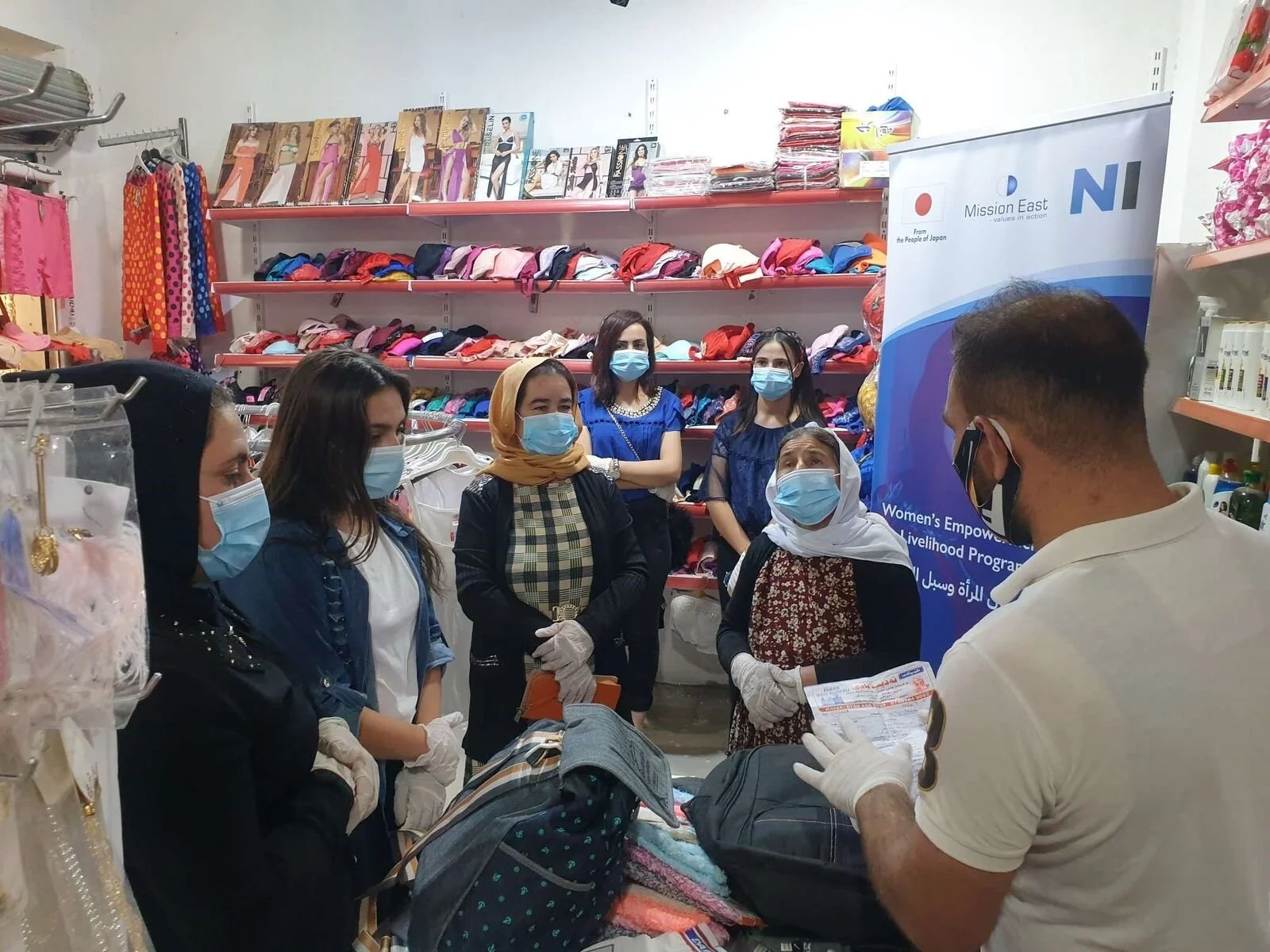Yazidi Survivor Details Impact of Nadia's Initiative Women's Empowerment Project
At 42 years old, Rana’s life was turned upside down overnight.
“I used to live a happy and simple life with my family in [a south Sinjar village],” she says. “Our life was stable in all respects. We owned a two-story house and all we worried about was our children completing their studies.”
But when ISIS attacked Sinjar in August 2014, Rana became a captive of ISIS with her two sons and seven daughters, the eldest of which was less than 18 years old. After six months of being held in captivity, they separated Rana from some of her children. For a year, her family was spread out across Iraq—Mosul, Tel Afar, Ba’aj and Sinjar. Then, Rana was taken to Syria and held in an underground tunnel.
“We suffered hunger and thirst and did not see the sun for nearly seven months. We were trapped underground.” Eventually Rana was able to make her way to safety.
Today, Rana is back in Sinjar with some of her children. Four of her children are still missing and she believes they are being held by ISIS, though she has no information about them. In addition to worrying about her missing children, she and her family struggle financially as her husband, who has undergone two surgeries, is unable to work.
Through the Women’s Empowerment and Livelihood Program, Rana and other survivors of ISIS will receive business skills training and cash grants in order to start their own business. The project aims to support these women in restarting their lives and gaining financial independence. Rana is looking forward to starting a perfume shop, which she hopes will help cover the family expenses. She has already taken a series of classes on business and financial literacy, and drafted a business plan for the shop.
“I expect that this project will be a turning point in our life,” says Rana. “It will secure our source of livelihood, and there is the additional possibility of expanding the project in the future.”
*Rana’s name has been changed to protect her identity.

